
No Mutants Allowed - A Fallout: A Post Nuclear Role-Playing Game Retrospective - Article
by Issa Maki , posted on 17 April 2023 / 5,323 ViewsSadly, I spent the 25th anniversary of Fallout mourning the death of my dog. The two events were entirely coincidental, but their unity coalesced into a time of my life I still have difficulties moving beyond. There's no going back to the way things used to be, and denying the path forward negates the human experience, ultimately preventing you from evolving into yourself. Combined with the contemporary events between our world's superpowers, I've learned to appreciate the ephemeral nature of a whimsical phrase we all take for granted: “I'll see you soon”.
On that note, let's examine the revered, post-apocalyptic RPG everyone claims to love, yet few have actually beaten for themselves. Along the way, we'll undergo a training regimen to retrofit the uninitiated and, by the end, we might have an idea of what to expect from the future. So, strap on the nearest Pip-Boy and throw on some 50s jazz (I'm partial to Nat King Cole myself), for we're off to a land where 'the devil and his children still walk with earthly feet': California!
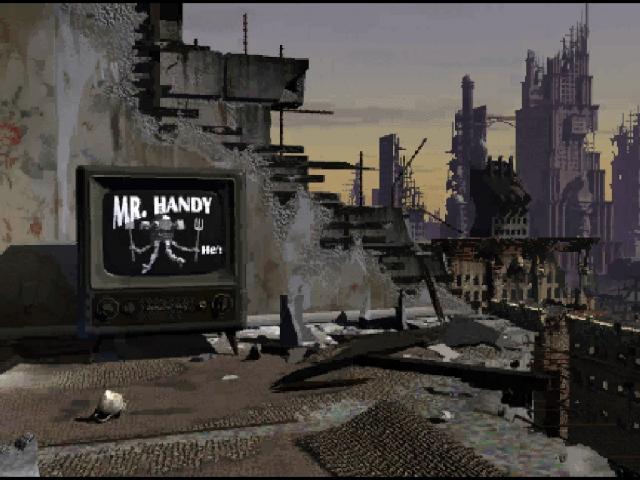
By the mid-21st century, the depletion of Earth's natural resources has pushed human survival past the point of civility. China invades Alaska; in retaliation, the United States annexes the entirety of Canada, as Europe disintegrates into hostile, isolationist nation-states. China's release of the 'New Plague' upon the United States devastates its population, leading the American citizenry to embrace paranoia and jingoism akin to the 1950s 'Red Scare'. Tensions would peak on October 23, 2077, when the theatres of war would open and close once again. Within hours, a nuclear play rendered 10,000 years of civilization into radioactive dust.
But not all was lost. Select groups found their way inside the great Vaults: massive self-sufficient tombs designed to outlast the conflict's lingering effects. As decades passed these shelters would open and pockets of mankind gradually began to populate the Wasteland. One such sanctuary – Vault 13 – is forced to expose itself under dire circumstances: without a replacement 'Water Chip' for its purification system, life inside the Vault will cease to exist. A lone emissary braves the dangers of this new world; their only clues lie towards the east – and the only thing that's assured is uncertainty.
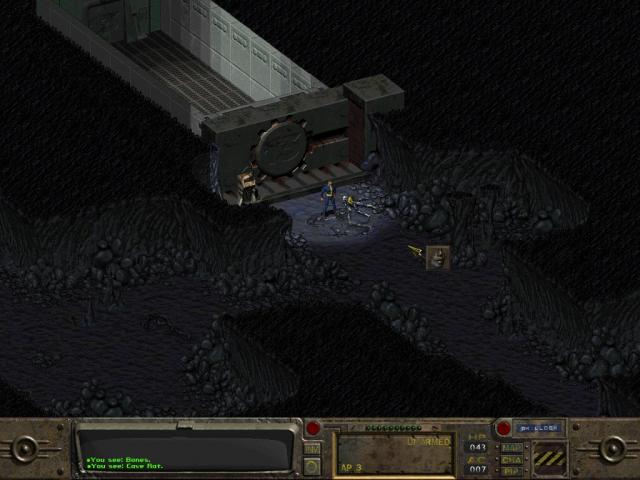
If I had to take a guess, I'd wager that the largest obstacle preventing modern gamers from enjoying Fallout is that they simply don't know how to play it. I grew up on Baldur's Gate and even I had questions about the basics: 'How do I move?', 'How do I reload?', 'How do I rest?', 'Will I ever meet my biological father?'. Fortunately, you won't have to go through these growing pains; stick with it and you'll not only realize how fluid – and fun – the game remains over 25 years later, but appreciate that some aspects of Fallout (and its sequel) have aged better than the early Bethesda titles.
Based on the once-beloved GURPS, Fallout's SPECIAL system has gone on to become a household name in the gaming community. These primary attributes hold jurisdiction over character development, influencing Skills and flirting with various Perks that can be unlocked. Strength increases your maximum amount of health and carrying weight, granting more proficiency in melee combat. Perception is an underappreciated stat, revealing dialogue options as well as determining the starting positions of random encounters; it's not glamorous but is a prerequisite for some of the best Perks. Endurance dictates HP, healing rates, and resistances, while Charisma is the odd-man out, as developing the Skills it's attached to (particularly Speech) offers more benefits than the stat itself. Intelligence offers more dialogue options and skill points per level. Agility governs Armor Class values and the number of Action Points available each round. Finally, Luck (my personal favorite) is an all-or-nothing type of discipline, increasing critical hit rates and pulling strings from behind the scenes. Save for Charisma (and to a lesser extent Strength), once you realize the potential each stat has over a build, it becomes a difficult – yet necessary – decision choosing what to develop and what to neglect: a trademark of great role-playing.
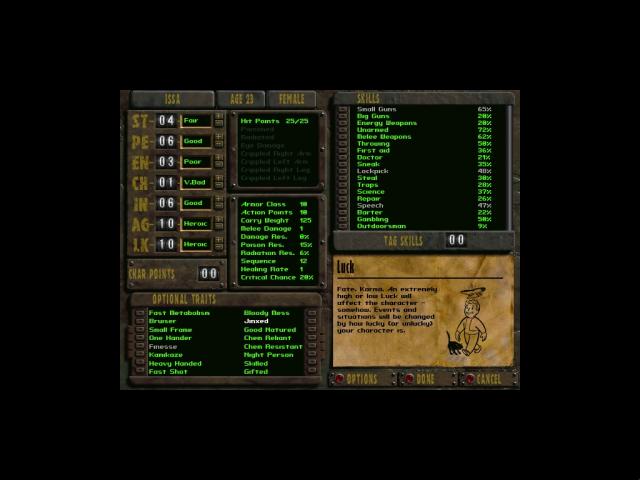
Traits double down on this idea, conferring significant bonuses upon a player at the cost of an equally noticeable – usually detrimental – consideration. Gifted bestows a +1 bonus to each SPECIAL statistic; in return, all skills lose 10% of their starting value and 5 less skill points are gained per level. Finesse increases your natural critical hit rate by 10% – at the cost of a 30% reduction in overall global damage. Decisions like these can make or break a build from its very inception (Jinxed is a life-saver for close-range fighters) and are where much of the 'hardcore' factor in old-school RPGs originates. Taking the bad along with the good is essential for creating the tension of consequence-based gameplay. These days, AAA developers forget that a decent impediment or handicap can be more fun to work around than mindlessly becoming stronger with no ill-effect.
Based on the allocation of SPECIAL stats and skill points, Perks are sporadically gained abilities that further shape a character's development. Gained every three levels (or four if the Trait 'Skilled' was selected), Perks are always beneficial but must be selected wisely to have the strongest effect. When possible, it's better to focus on combat multipliers rather than skill-based boons. Better/More Criticals, Sniper, Slayer, or Action Boy/Girl will have significantly more impact than Animal Friend, Awareness, or Survivalist. Though some have specific applications, for the most part Perks definitely have a bit of a tier-list thing going on.
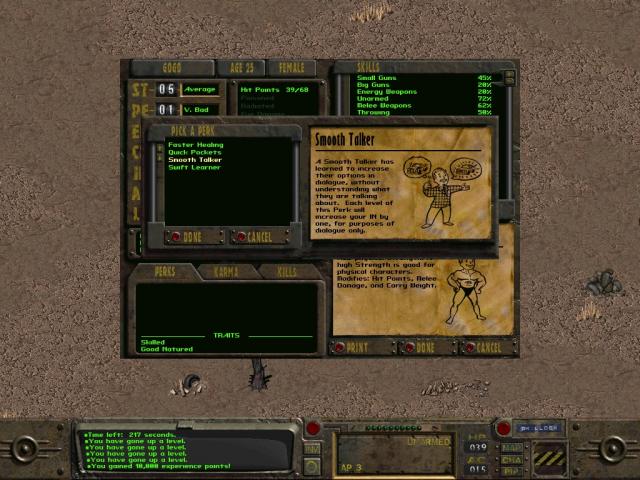
Skills are fairly self-explanatory, also falling under a hierarchy of usefulness. Small Guns, Speech, and Lockpick are universal for most characters, while Steal and Traps take more dedicated mindsets to utilize. This isn't to say that Outdoorsman, Barter, and Gambling can't be effective, but would definitely require some creativity to find success. Don't be afraid to experiment; Fallout's greatest strength lies in the versatility its gameplay fosters. I still testify that my low-intelligence girl specializing in 'Unarmed' was more fun than any gun-based build I've made since.
Just outside of Vault 13 is the closest we'll find to a tutorial, despite not actually 'teaching' anything about the game. Fallout expects players to be familiar with its (awesome) instruction manual, but that's what I'm here for. Left click on the mouse to move forward is S.O.P., but it's right click that's going to be your new best friend. Under this state, the world of Fallout instantly becomes accessible: NPC's can be identified, the environment and its contents become detectable, the minutiae here is impressive and important. Pay attention to even the slightest of details: panels on walls, a ventilation duct, even the manhole lid of a sewer. Young eyes won't recognize what they see and will gloss over vital information – not because they lack the ability, but because they haven't been challenged in this way before!
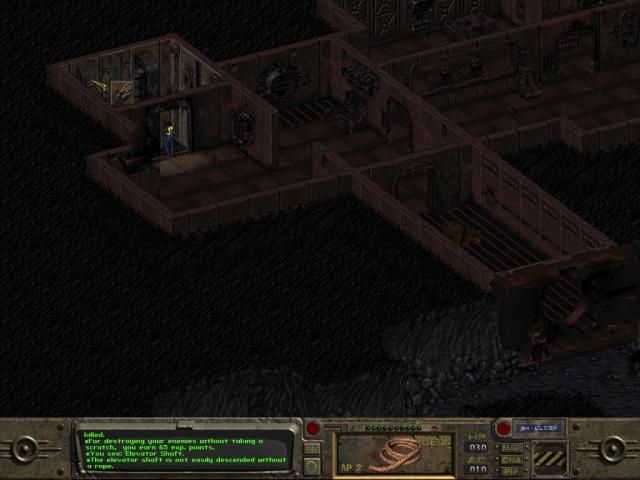
We can adjust! Whenever the reticule resembles a hand, it means that something can be interacted with in the game world. This will fill your coffers and expedites movement. Right clicking (followed by a left) on ladders, doors, etc. across the map keeps down the finger milage, giving time to 'lead' or push the camera onto the next 'screen' so players can plot their next course of action. Once you get the flow of exploration down, you'll come to understand what your character accomplishes in seconds would take minutes to achieve in the post-Bethesda era. The gameplay isn't nearly as outdated as it appears; we're just misaligned with it in today's day and age.
Moving towards an enemy initiates 'Combat Mode' and, from there, Fallout proceeds into a relatively simple turn-based RPG. A character's 'Sequence' determines their spot on the order of rotation, while the number of Action Points influences what they can do each round. Moving a single 'hex' uses 1 Action Point, accessing the inventory costs 4. Normal attacks expend anywhere from 3-5, while an 'aimed' attack (what people today call V.A.T.S.) takes an additional point to perform. Again, right click is your wingman here, allowing you to cycle through your various attack/reloading options. Keep in mind that 'End Turn' and 'End Combat' are two different commands, despite looking like a single choice on the HUD. The darkened panels at the edge of each map are called 'Exit Grids' and how one transitions from area to area. Take these fundamentals to heart ('Z' to rest!) and you'll be able to continue in confidence.
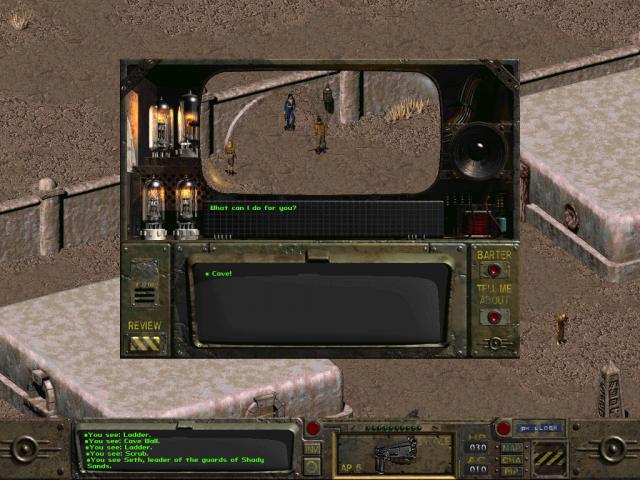
Upon reaching Shady Sands, Seth (who has a great cameo in New Vegas) will more than likely be the first person to greet us. He'll lecture about the virtues of putting our weapons away while in town, as well as being the springboard for several side quests. Of particular note is the 'Barter' button; many NPC's throughout Fallout have personal bazaars, and since vendors don't restock their inventories, a fair amount of supplies will come from people you might not think to trade with. Seth also sells one of two ropes required to descend Vault 15 (there are more hiding around town), so keep your eyes open and you'll be one step closer to securing the hallowed Water Chip.
At this point, I feel obligated to field reservations some might have concerning Fallout's infamous deadline to complete the initial main quest, as it's gone on to become one of the scarecrows of gaming. Yes, there's only so much dilly-dallying to be had before unconditionally losing. However, not only is it possible to extend this by an additional 100 days, but once players know the chip's location it's retrieval and safe return can take less than an hour – even on the hardest difficulty settings. Heck, if you're fast enough, the entire game can be beaten without needing to find it! Don't be too concerned or you'll miss out on much of the charm that was lost during the series' transition to Bethesda.
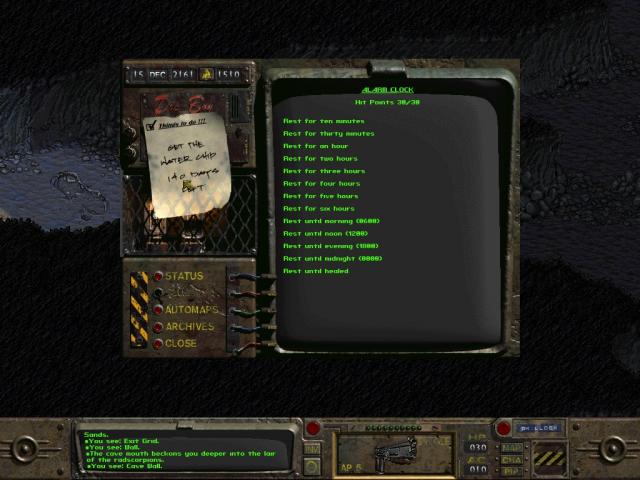
For if there's anything that dates Fallout, it's not the gameplay, but the litany of pop culture references that permeate every corner of the Wasteland: Mad Max, Dr. Who, Dune, The X-Files, Sesame Street, Buffy the Vampire Slayer, Godzilla, A Christmas Story, The Maltese Falcon, possibly Night Court... the world itself is a cultural touchstone of late 20th century America. Similar to the old show Mystery Science Theater 3000, Fallout is essentially one massive inside joke – should you be in on the loop, it's like having a club membership. Take the game's opening cut scene: if you're not picking up on its extremely dark parody of Vietnam (specifically the Eddie Adams photo/footage), coupled with an obscure reference to The Simpsons (Homer's childhood television set was a Radiation King), suffice to say you might not be the target audience. This is where part of the elitism in Fallout's original fanbase comes from, and while I distance myself from that whole movement entirely (despite agreeing with some of its rhetoric), I will say this: if you think that Fallout 3 or New Vegas is the best of the series, you probably haven't explored Fallout or Fallout 2 in nearly enough detail to be making that call.
What impressed me about Baldur's Gate was the sheer amount of classes available to create. However, it eventually boiled down to a point where it was more entertaining rolling dice on the character generator screen than actually adventuring around the Forgotten Realms. Why? Because for all the variety, it ultimately served a single purpose: to fight. This is where Fallout reigns supreme. Though the number of builds is more limited compared to its fantasy contemporary, the ways in which those styles can be implemented is vastly more intricate. When it comes to the 'role-playing' department, I'm frequently reminded of the Persona series, but in terms of overall freedom towards accomplishing goals, the closest analogy I can think of is Sid Meier's Pirates!
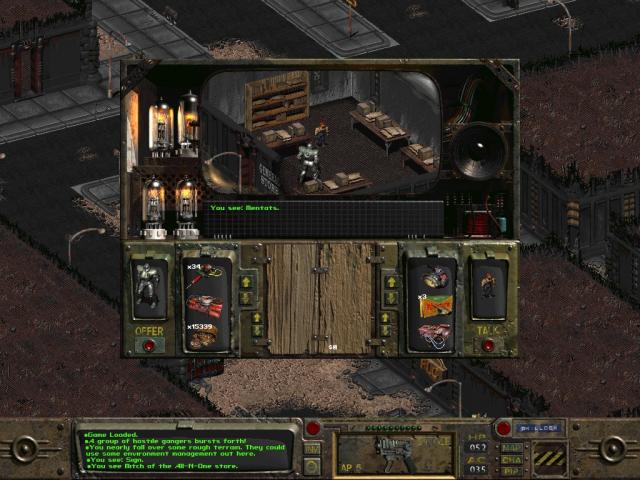
Broadly speaking, there are anywhere from one to three approaches to a given situation that we'll label combat, stealth, and pacifism. Best of all, these disciplines aren't mutually exclusive and usually most effective when combined together. Needless to say, as they become increasingly familiar with Fallout's inner workings, resourceful players will find a deep sandbox to sculpt to their liking. Without spoiling anything major, only one of the possible outcomes involving the final boss results in a direct encounter. This would be impressive for a game to accomplish today – and we're talking about 1997 here! The more I think about it, maybe the true reason Diablo keeps coming back is because nobody has ever tried asking him not to.
One example is the Super Mutant guarding the entrance to Vault 12. With high stats, developed skills, and the proper dialogue options unlocked, a suave Vault Dweller can easily talk their way around an extremely deadly situation. However, someone with a low Intelligence and nothing invested in Speech could accomplish the same task – by virtue of being so dumb that nobody (including Super Mutants) wants anything to do with them. Seasoned veterans can deliberately fail the conversation and be taken to the Mariposa Military Base, bypass its boss fight, and blow up the facility – completing the second main quest before the first! And for those rare instances where the coin lands on its side, one can simply give in to the torture at the base and reveal the location of Vault 13, ending everything then and there. Those are just the possibilities stemming from a single encounter; imagine all the other ways events could possibly unfold!
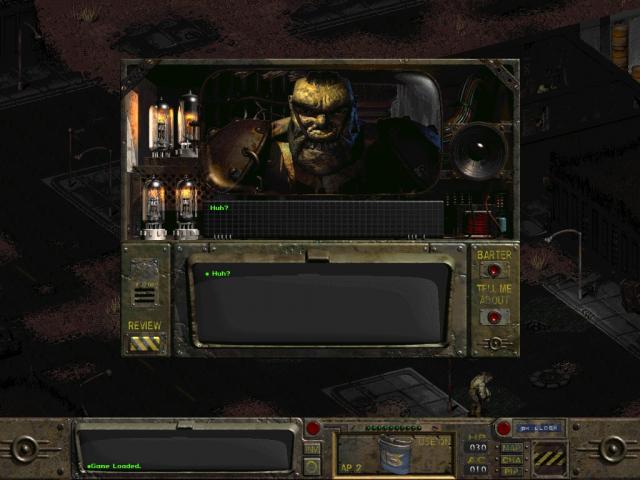
It's an imperfect system but becomes considerably more fun when you know how to press an advantage. As horrible as it is, I'm reminded of my time with the Crimson Caravan. Twice a month, the Vault Dweller can serve as a bodyguard for supply runs that travel to and from the various towns in the Wasteland, which universally results in a skirmish of some sort. But because these encounters are always scripted, it means that everyone on the battlefield – including your fellow mercenaries – is fair game to eliminate with no penalty whatsoever to your reputation. Players can simply defend the caravan from its attackers before turning on their co-workers, then sell off everybody's equipment for increased profits! I would think the denizens of The Hub would catch on that I'm always the only one coming back from these sorties, though perhaps they have and know how to keep their mouths shut. Because if there's two qualities we're taught over in America, it's honor and integrity.
For a game so old, my criticisms of Fallout are surprisingly minimal, but chief among them is its story. Though the setup and ending are easily among the strongest in video game history, what happens between the two has little consequence on the Vault Dweller as a character. Part of this is a byproduct of giving the player so much freedom; once you do, it becomes difficult to nail anything down from an internal perspective. There are certainly memorable locations and NPC's (such as Necropolis or Killian Darkwater), and choices made throughout the Wasteland impact its game world, but what players will take away from Fallout is the process of 'how' their character was developed, as opposed to 'why' they chose a particular course of action. This is the fundamental difference between wRPGs and jRPGs; it's a preference issue, but I'd like to hear some of the Vault Dweller's inner monologue about what's happened to them. The manual for Fallout 2 makes up for lost ground, revealing a heartbroken, damaged individual who gave up everything only to gain nothing in return; revelations that get lost in the sea of quippy dialogue and geek culture name drops.
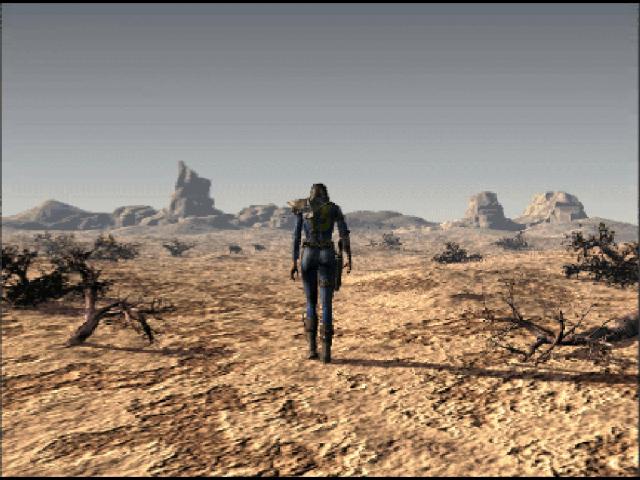
The pool of optional allies is also mediocre, at best. Everybody loves Dogmeat, sure, but I've never heard anyone talk about how awesome Tycho is (despite being the inspiration for New Vegas' cover art). Worse is that companions can't equip armor or level up, restricting their overall usefulness to the early stages of the game. This is another aspect sequels would greatly improve upon, but don't go around expecting to recruit any robot dogs or Deathclaws. Let's just say there's a reason why Nick Valentine has a Wikipedia page and 'Ian' doesn't.
What's most regrettable about Fallout is that neither the original games nor their creators get the recognition they deserve for establishing such an iconic franchise. In the eyes and hearts of an entire generation, Bethesda receives all the credit for what was somebody else's labor of love. And while I think the company has done a decent job as steward (barring Fallout 76), it's not hard to argue that the series was basically taken away from its true owners. Interestingly, now that Microsoft owns both Bethesda and Obsidian Entertainment, it could essentially try putting the band back together again. Following the release of Starfield, The Outer Worlds 2, and The Elder Scrolls VI, a Fallout 5 or New Vegas 2 makes complete sense to me – and I'm only wearing one sock! My biggest concern is time; if things don't shape up, there's a good chance we'll be acting out the next game in the series rather than playing it.
Fallout forces me to ask a difficult question: is a future like this within the realm of possibility? All this talk about forever chemicals is bad enough, nevermind the spy balloons, A.I. chip embargoes, and daily mass shootings. Until it's proven otherwise, we must assume that this is the best of all possible realities. Yesterday and tomorrow are always in flux with one another; if you won't forgive the past, at least have the courage to accept it. Doing so will stop the cycle of conflict that always ends in hate, and we can spend our remaining time preparing the world for those who will inherit it.
I've seen the future and it's absolutely true: you can't hug with nuclear arms – so let's stop trying.
More Articles
I think a major obstacle for a lot of people will be the visuals and overall dated look of the game and its interfaces. Those original games are prime candidates for the HD remaster/remake (if handled with care and respect) trend. Although I can hilariously imagine them being overlooked entirely in favour of a Fallout 3 remake.
I've been meaning to get into the series (and the older games, to be more precise), but the atrocious graphics is one of the biggest obstacles in my way. Graphics-wise, I'm not very demanding on the technical front, but I can't imagine old Fallout games ever having been considered good-looking. I think I actually started up Fallout 2 when I bought it on GOG waaay back, but getting into it would probably have required some effort... Maybe some day.
Also, I'd be somewhat surprised if there wasn't a mod or an engine upgrade or something available to improve the graphics somewhat. Would be great if there was something official though. Many games that get remasters aren't really that much in need of a remaster, but the older Fallout games definitely are.
The visuals aren't a huge obstacle to me, as I still enjoy early 80s Atari 2600 and 8-bit games. The interface is definitely my biggest obstacle. One reason I liked NV was that it had the feel and mechanics of Fallout 1 and 2 in a (for the time) more modern interface.
That's almost definitely the case for me. I've given up on trying to get into really any older games. Sometimes I can handle a platformer. But that's it. Everything else just looks so terrible to me.
I've been gaming since 1982. These games had their time. I've moved on. I haven't tried Fallout. But, I see no reason to think it will be any different.
Interesting retrospective. This my all-time N1 game. I must have played at least 5-6 times by now and it's still amazing every time I give it a try. There's a modded version of the original game where you can equip your allies with armor and order Dogmeat to stay somewhere when you don't want to risk him. That's my preferred way to play the game now.
I wish they could get HD remasters like the one they did for Diablo 2 (why not Diablo 1 btw?). That's the one game that could make me consider getting an Xbox (if it ends up being MS exclusive)
I've played Fallout 1 back in the 90s for the first time, and it immediately became one of my favourite games, and, along Fallout 2, it still remains among my Top 10 - there's probably no other games I come back to so frequently as FO1/2.
I'm not a fan of Bethesda's take on Fallout IP (to quote one of Fallout's creators, Tim Cain, "My idea is to explore more of the world and more of the ethics of a post-nuclear world, not to make a better plasma gun."), so I'm hoping that now that MS owns both Bethesda and Obsidian, there will be more Fallout games coming from Obsidian, which at least have some of the original creators.
For people like me, who prefer FO1/2, there are good total conversion mods out there - I've played Fallout 1.5: Resurrection and Fallout: Nevada, and they do a very decent job at keeping the same feel of the originals (though Nevada brings a lot of other stuff as well). Still hoping for Fallout: Sonora (from same team as Fallout: Nevada) getting English translation, though it's been quite a while now...
good article man!
I played Fallout 1 a few years back for the first time and actually enjoyed it quite a bit despite some obvious flaws. Was less fond of 2, but there certainly is something unique and charming about the top-down Fallout games. I think I'd be more interested in seeing a new top-down Fallout made today than another Elder Scrolls style one, even if I do like that style of game a lot.
It feels hollow today, na mean.









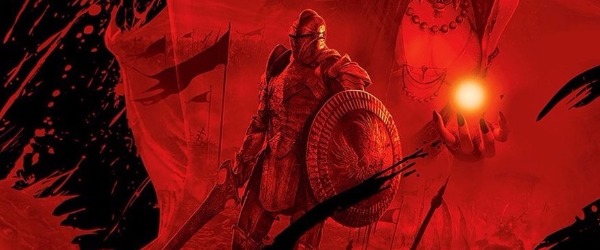
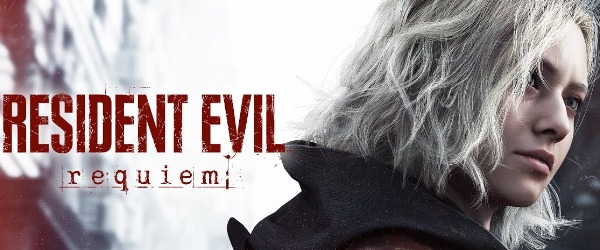













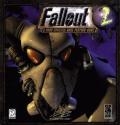
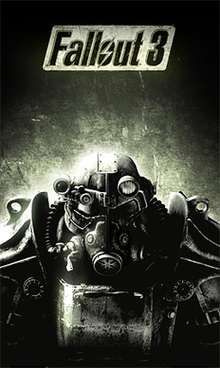

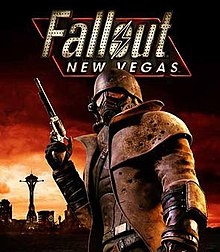
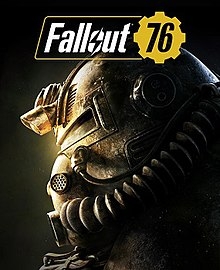
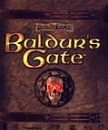
 Essay Pro
Essay Pro